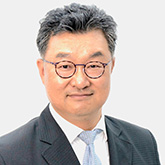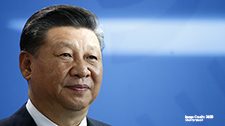
Heungkyu Kim
Former Visiting Fellow
Dr. Heung-Kyu KIM received his BA and MA in international relations at Seoul National University, ROK, and a Ph.D. in Political Science from the University of Michigan, USA. He is a founder of the US-China Policy Institute and serves as Director, and Professor in the department of political science and diplomacy at Ajou University, ROK. He served six years as Professor at the Institute of Foreign Affairs and National Security (IFANS), MOFA. He was a visiting fellow at Georgetown University [2018], George Washington University [2022] in USA, and the Institute for Security and Development Policy(ISDP) in Stockholm, Sweden, in February 2020 and currently.
His careers include Chairperson in the Reform Commission of the Ministry of Foreign Affairs, a board member of the Policy Advisory Commission in the Presidential National Security Council, and other governmental positions such as in the Ministry of Foreign Affairs, Unification, National Defense, the Army, and the National Assembly. Also, Dr. Kim was Chairperson of the foreign policy sub-committee in the Presidential Policy Planning Commission, an executive consultant in the State Affairs Planning Advisory Committee, and a regular participant at ROK-China Strategic Dialogues. He was also invited as a board member of the national integration commission in the Presidential transition committee for the Yoon Sukyeol government.
Dr. Kim has written more than 300 articles, books, and policy papers regarding Chinese politics and foreign policy, US-China relations, and security issues in Northeast Asia. He’s been the reviewer of International Relations of the Asia-Pacific (IRAP) in 2020. He wrote a book titled China’s Central-Local Relations and Decision-Making and got an award for Excellency of the year by the Ministry of Culture in 2008. He also got awarded the NEAR Foundation Academic prize of the year in Foreign Policy and Security area in 2014.
